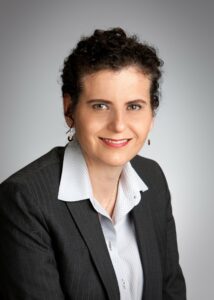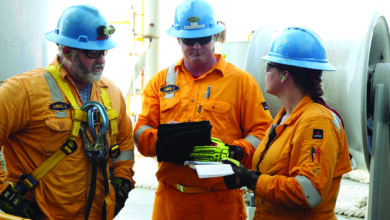Perspectives: Linda Ibrahim, Vantage Drilling: Understanding all business drivers, getting internal buy-in are key to driving tax efficiency

By Linda Hsieh, Editor & Publisher

“Sexy” is not a term you often hear used to describe the oil and gas drilling business, but that’s exactly how Linda Ibrahim perceived this industry when she first came into contact with it back in the early 2000s.
She was doing public accounting for PricewaterhouseCoopers (PwC) at the time, based in Houston, and found herself consulting for big oil and gas companies like Shell Oil and ExxonMobil. But it was the offshore drilling contractors who were always her favorite clients.
“Because you knew that nothing was ever going to stay constant,” said Ms Ibrahim, who currently serves as Chief Accounting Officer and VP of Tax for Vantage Drilling. “Drilling contractors have a mobile workforce and mobile assets, so it’s a dynamic industry. My clients were frequently taking their business to new and exotic locations to start new operations, and that meant we had to learn about how taxation works in these new places.”
For people like Ms Ibrahim who thrive on change, it was the perfect industry in which to build a career. So when she was presented with an opportunity to join Pride International in late 2006 as Assistant Tax Director, she jumped at the chance. “The scope and breadth of our business is regulated in different ways, and there are many catalysts putting pressure points on our operations. We have to learn not only about corporate laws but also about maritime laws, immigration laws, labor laws, customs laws and local content regulations. That broader view beyond tax really appealed to me.”
Turning off the blinders
Transitioning from a public accounting role to a full-time position with a drilling contractor came with a big learning curve, however. “I had blinders on when I worked as a consultant,” she soon realized. “My only goal was to get our clients to the most efficient tax structure and get them the ultimate tax savings. But sometimes our clients would come back and say, we’re not going to implement that. I was constantly baffled – why would they choose to pay more taxes?”
It wasn’t until she joined Pride that she gained a much more intimate understanding of the drilling business. “The tax department doesn’t drive the business,” Ms Ibrahim said. “We can set something up, but it’s the operations, marketing and other departments performing the transactions. That’s why it’s important to get internal buy-in to the structure you’re trying to put in place. Because if they’re not 100% convinced that this is the best way to operate the business, your colleagues might deviate from what you set up and then you end up not achieving the intended results. To drive tax efficiency for the organization, you really have to show all these other stakeholders what your vision is.”
In the drilling industry, a good tax professional also realizes that there are other, more forceful drivers at play than taxes.
“When people ask me, ‘can we do this?’ I think what they’re really asking is, ‘what are the tax consequences when we do this?’ And I continuously say that we can do anything we choose to do, we just need to make sure we’re comfortable with the tax effects of what we do. If we do it in this manner, we have a tax of $10. If we do it slightly differently, we have a tax of $5, but can you work within the limitations in order to achieve that $5 ultimate tax?”
“I think of myself as a trusted adviser, and I have to find ways to convey very complicated tax implications without losing the audience,” Ms Ibrahim said.
In April 2010, she joined Vantage Drilling as Director of Tax, attracted by the youth of the company and the fact that it had only new assets. She also liked the relatively small size of the company, which she anticipated would lead to a more diverse set of responsibilities.
That expectation was realized when she was promoted to VP of Tax and Governmental Compliance in January 2015. Assuming a broadened role within Vantage, she worked to ensure that the company’s operations aligned as much as possible with all the various laws governing that jurisdiction, wherever it was. She described her role as “looking at the compliance of all the laws from a holistic perspective and making sure that the puzzle pieces fit as tightly as possible.”
Having a collective voice
Ms Ibrahim has been active with IADC for most of her career, going back to when she participated in her first IADC Tax Conference when she was with PwC. When she joined Pride, she stepped up her participation with the IADC Tax Committee, working extensively with committee chairs to lobby governments on tax policies. She also chaired the Tax Committee for the past three years, recently stepping down in June 2021.
“There are changes being made to tax laws every day, and we often have to educate the local governments about the drilling contractors’ role in the supply chain. They know the Shell Oil companies of the world, but often they don’t know where to categorize the drilling contractors. The part we play on our customer’s programs is minor compared to the full scope of those programs, therefore taxing us similarly to a company that’s going to stay in a country for 15 years or more is probably not appropriate.”
The value of the IADC Tax Committee, she said, is pulling contractors together and giving them a louder voice so they can make positive changes collectively. “When we speak as an industry, we’re not speaking for one taxpayer but for many taxpayers. It becomes a much easier conversation.” DC



